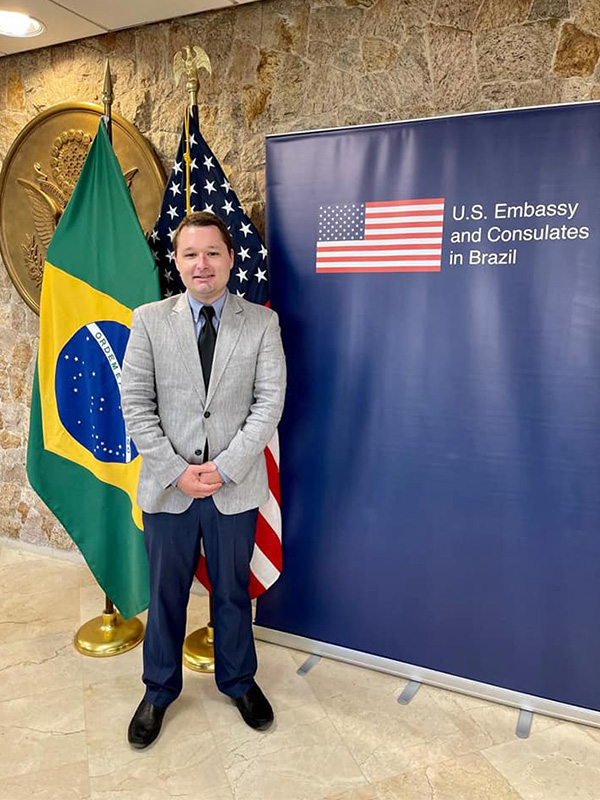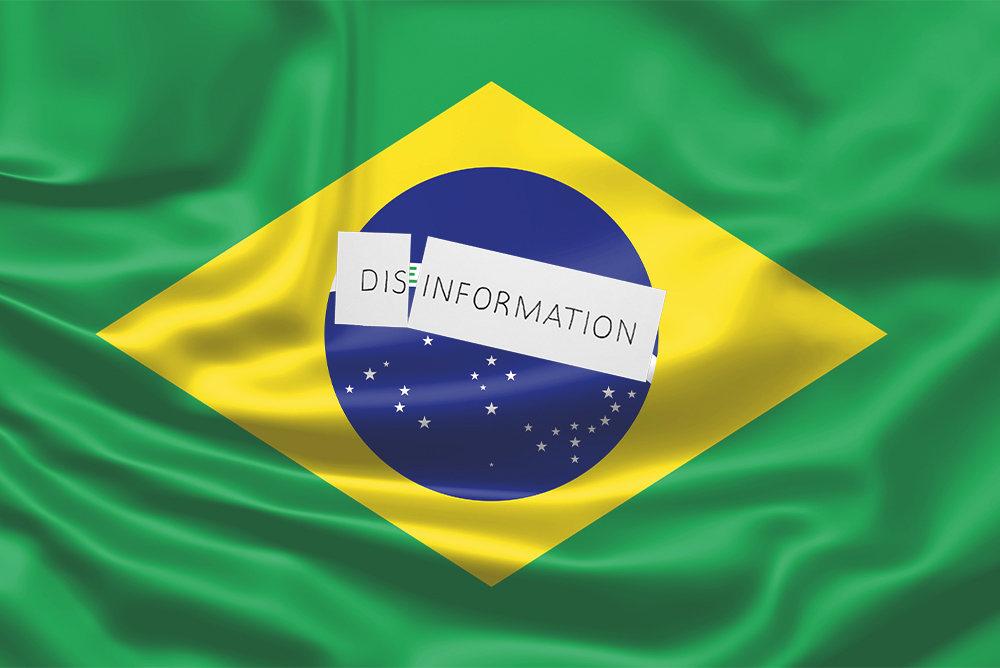
Joshua Scacco
Amidst the uncertainty of a presidential election campaign in Brazil, there is concern from advocates around the world that a free and fair election in the country is at risk due to digital disinformation campaigns. In an effort to raise awareness about global disinformation campaigns, a free press, and how journalists can respond to anti-democratic messaging from elected officials, the U.S. Embassy and Consulates in Brazil invited University of South Florida Associate Professor of Communication Dr. Joshua Scacco to the country this past summer as part of the State Department's Speaker Program.
In late July, prior to the start of elections in October, Dr. Scacco visited Brasilia, Manaus, and São Paulo to meet with journalists, journalism students, researchers and academics, and news organizations to discuss best practices for election news coverage, navigating president-press relations, ensuring press freedom, and emphasizing the democracy-focused frame in news stories.
Drawing on his more than a decade of experience working with and conducting research for newsrooms and journalists in the United States, as well as findings from his recent book, The Ubiquitous Presidency, Dr. Scacco spoke about the importance of a free press amid democratic backsliding in some world democracies. The discussions also included how journalists could confront dis/misinformation from elected officials and candidates, manage and mitigate political polarization, prioritize responsible coverage of presidential and executive communication, navigate harassment and threats offline and online, and curate a digital presence for audiences.
Dr. Scacco noted in his remarks that “A free press plays an important role in holding power to account as part of democracy-focused election coverage. Journalists have a critical role in this moment in contextualizing how anti-democratic movements and messaging are outside the bounds of democracy. After all, a free press and democracy go hand in hand.”
As democracies worldwide face renewed strains in the 21st century, it is critical that researchers and practitioners partner to chart paths forward related to dis/misinformation, securing democratic institutions, and sustaining a healthy exchange of information and ideas.
